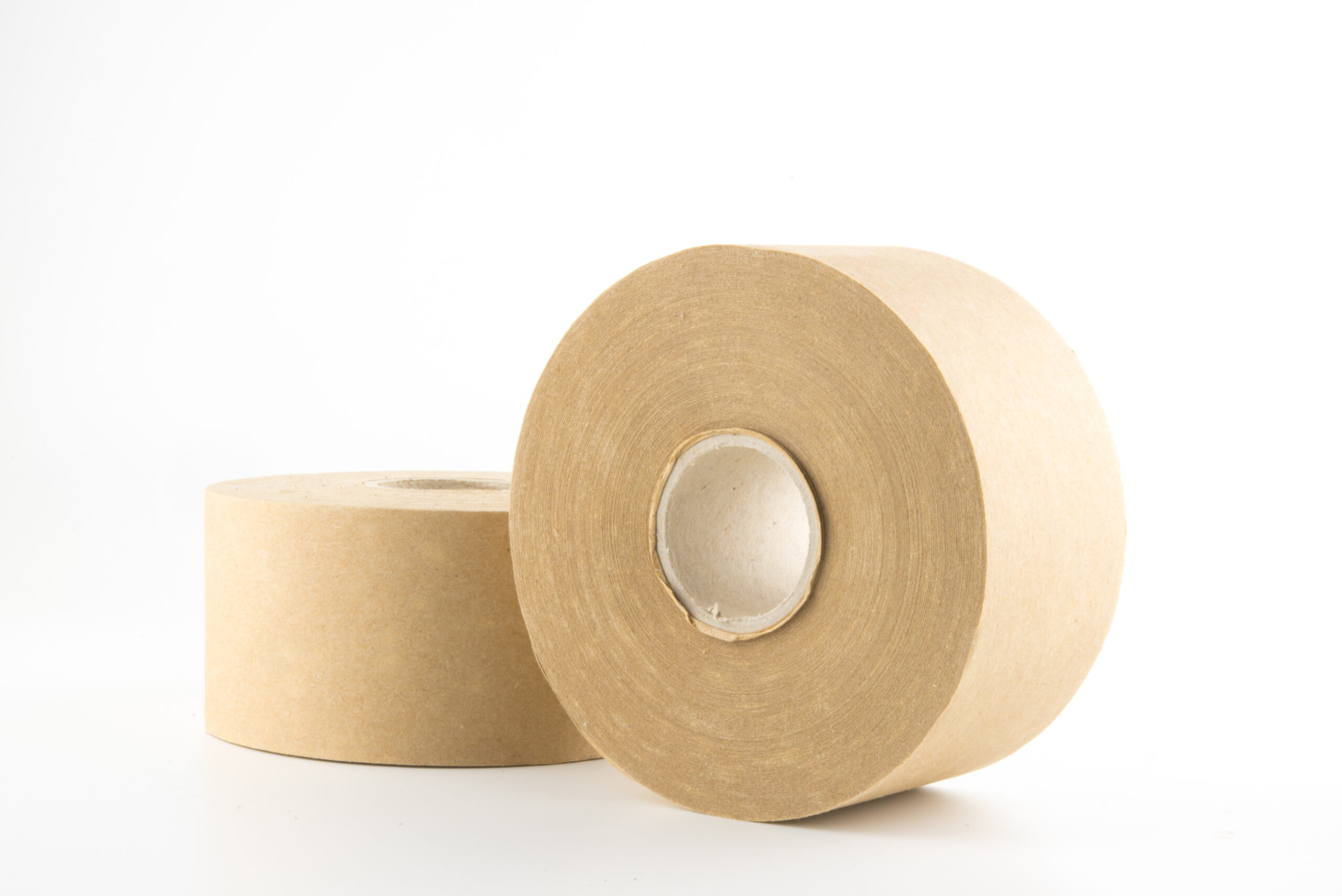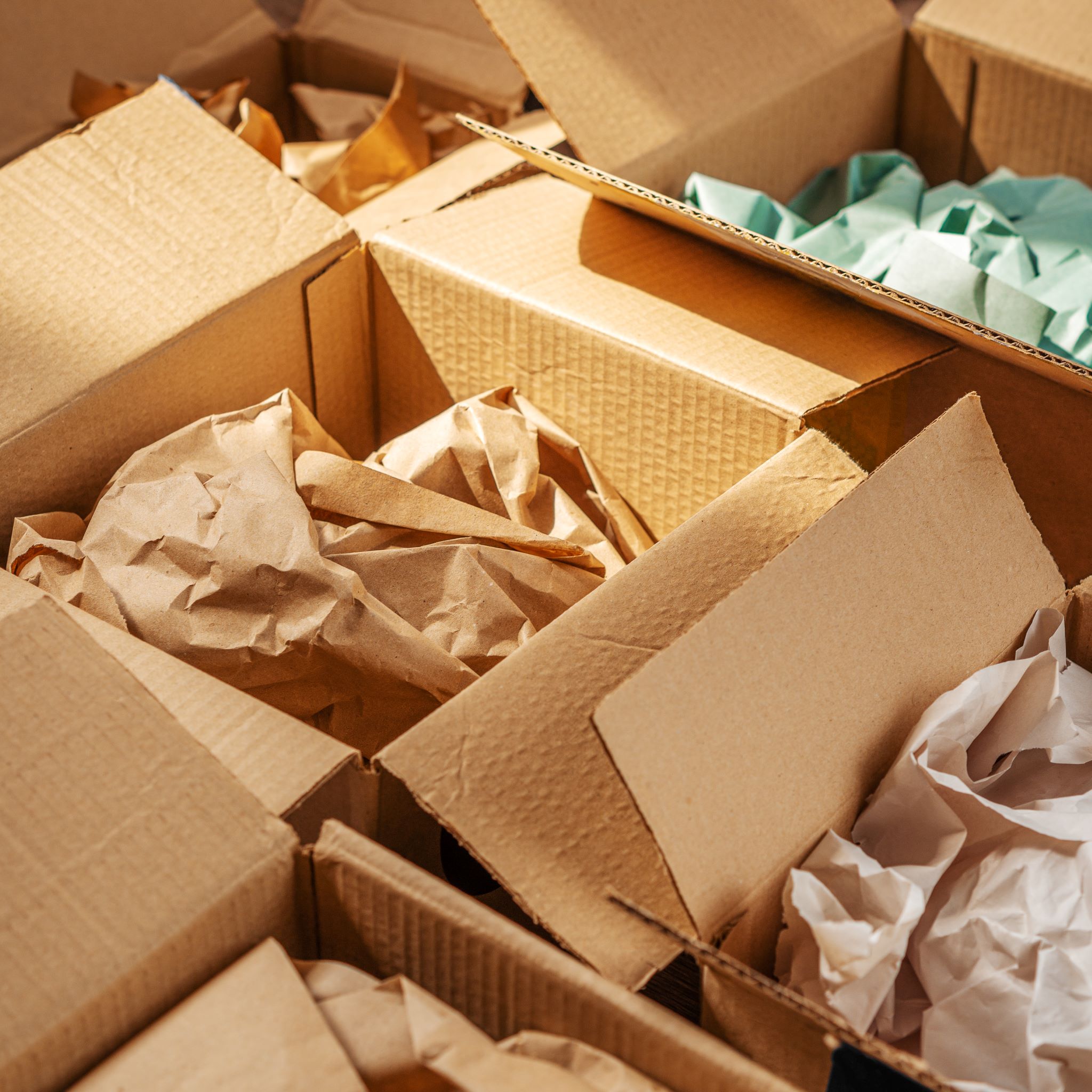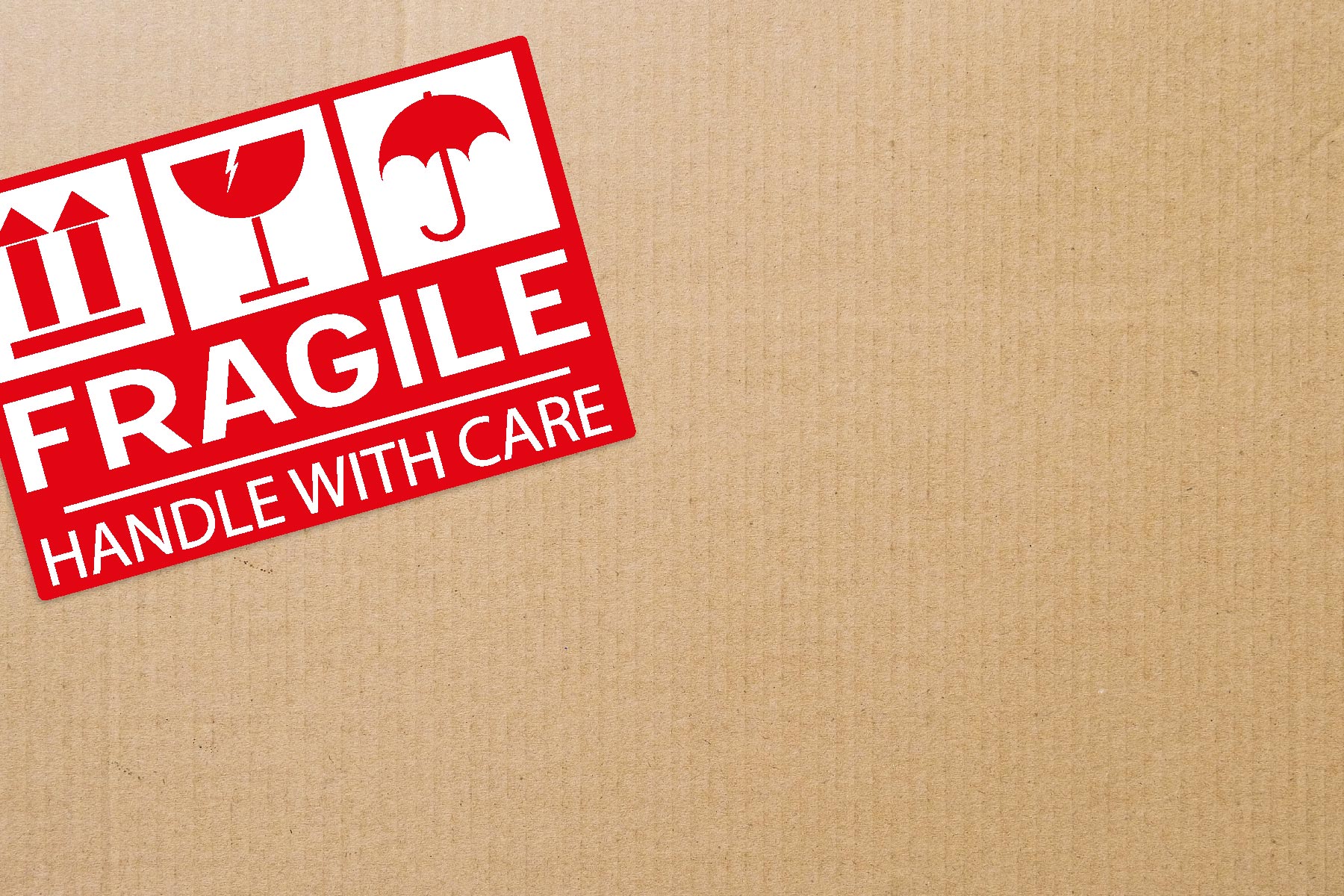Our Ambition: We have asked that by the end of Quarter 4, 2024, all of our partners reduce their use of vinyl tape, bubble wrap and polychips.
We are encouraging partners to replace all three products with the following green alternatives:
- Vinyl tape with paper tape
- Bubble wrap with paper bubble wrap, pleatwrap, paper blankets or corrugated cardboard
- Polychips with paper void fill, paper bubble wrap or reused and then shredded paper
We are delighted to report that several of our partners have already begun to reduce the amount of plastic used in their shipments.
Green Alternatives
All of the boxes that One Moving & Logistics use are made out of cardboard. When the client/assignee agrees, they also reuse boxes, a green process which will also ultimately reduce costs. They only use paper tape, they use cardboard packaging (e.g corrugated cardboard) instead of bubble wrap, and they recycle all boxes received via import shipments.
Classic Moving use both a water gum paper tape and an adhesive paper tape. They have also stopped using plastic-based fragile tape; rather than replacing it with an alternative, they have opted to simply label boxes as ‘Fragile’. For furniture and other bulky items, they have substituted PE Foam for a Kraft corrugated cardboard, and have replaced float chips with additional packing paper.
Mercury Mobility started moving away from using plastics back in 2020, when they began substituting polychips and bubble wrap with various paper products. Today, all of their boxes and all of their export blankets are 100% recyclable. Mercury Mobility have also started to reuse their boxes. Three Singapore-Geneva shipments which they completed recently used a total of 425 boxes: the company believes that they will be able to use c. 95% of these at least once again.
Rising to the Challenge
Whilst the prospect of changing the industry as a whole is an overwhelming one, Nick, Brian and Wesley argue that the prospect of driving change within your own company is less daunting. For Nick, it’s about just being bold and making a change. “If you don’t buy plastic packaging materials, then your crew can’t use them. It’s as simple as that,” he says. “Yes, your decision will probably create a lot of noise, but it will only last for a little while; people soon adapt when they realise that there is no other alternative.”


When it comes to the resistance to increased costs obstacle, Wesley has a strong set of counter arguments waiting in the wings. Corrugated cardboard works just as well as bubble wrap, plus it isn’t at risk of becoming a breeding ground for mould when operating in humid climes. Paper tape may be more expensive than plastic tape, but if you start reusing cardboard boxes, the cost saving that you make in this area will more than cover the additional expense. Furthermore, Wesley is finding that overall, sustainably-packaged shipments are only coming out 1 – 2% more expensive than those packaged using traditional materials. Whilst this figure isn’t inconsequential, particularly for high-value or bulk shipments, for many companies, it is low enough to make the use of sustainable packaging materials a viable option (plus the figure should decrease as demand for the alternatives increases). What is more, it will likely make your company more attractive to clients who have a robust sustainability programme (an ever-increasing number), giving you a potential edge on your competitors.
Finally, it is important to remember that you don’t have to do this on your own. Brian is a big advocate of talking to your material suppliers, who will likely be motivated to find a new solution if they have customers who are asking for one. Furthermore, some suppliers will hold the FSC label (the world’s most trusted mark for sustainable forestry), which means that they have to use 60% – 80% recycled pulp in all of their products. In this way, they are already heavily invested in sustainability, making them a) more likely than most to be open to new solutions, and b) a potentially rich source of knowledge when it comes to green alternatives. Brian also encourages those looking to make a change to set themselves a number of targets: “Be proactive. Don’t wait for the industry to drag itself into gear. Be the change rather than waiting for change to happen and then running to catch up with it.”
Support from K2 and the Position of the Industry
Wesley, Nick and Brian all cite K2, in particular K2’s partnership with EcoVadis, as the catalyst for many of the sustainability-driven changes that they have made/are currently making. “You are leading by example,” says Brian, “which both inspires and guides us. I’m hopeful that together, we can start our own little snowball effect, adding volume to the sustainability conversation and doing our own little bit to facilitate industry-wide change.”
For industry-wide change to take place, there needs to be a systemic shift in mindset. Whilst this won’t happen overnight, small changes which constitute positive steps forward can already be noticed. When he attended the sustainability session at the FIDI Conference last year, Brian found himself sitting in a room with just 18 fellow delegates. This year, interest in the session was so high that FIDI ran it on every day of the 4-day conference, with attendance hitting between 50 – 60 each time.


Nick makes the valid point that when it comes to the global mobility industry, a great deal of the conversation is focused on the big corporate companies for whom change tends to come slowly and painfully. But many moving companies are small, family-run enterprises whose size can make them more agile and responsive when it comes to riding the wave of change. So perhaps, Nick suggests, it is the smaller companies who hold the key to driving the groundswell which will lead to a systemic shift in mindset within the industry?
With every day that passes, the world becomes more concerned with sustainability. Wesley comments that the two issues which Brazilians are most invested in are sustainability and football (of course!) “Over time (and we’re talking more short- than long-term, the strength of the widespread social interest in sustainability will help fuel the change in mindset that the industry requires in order to significantly reduce the volume of plastic that it consumes.”

